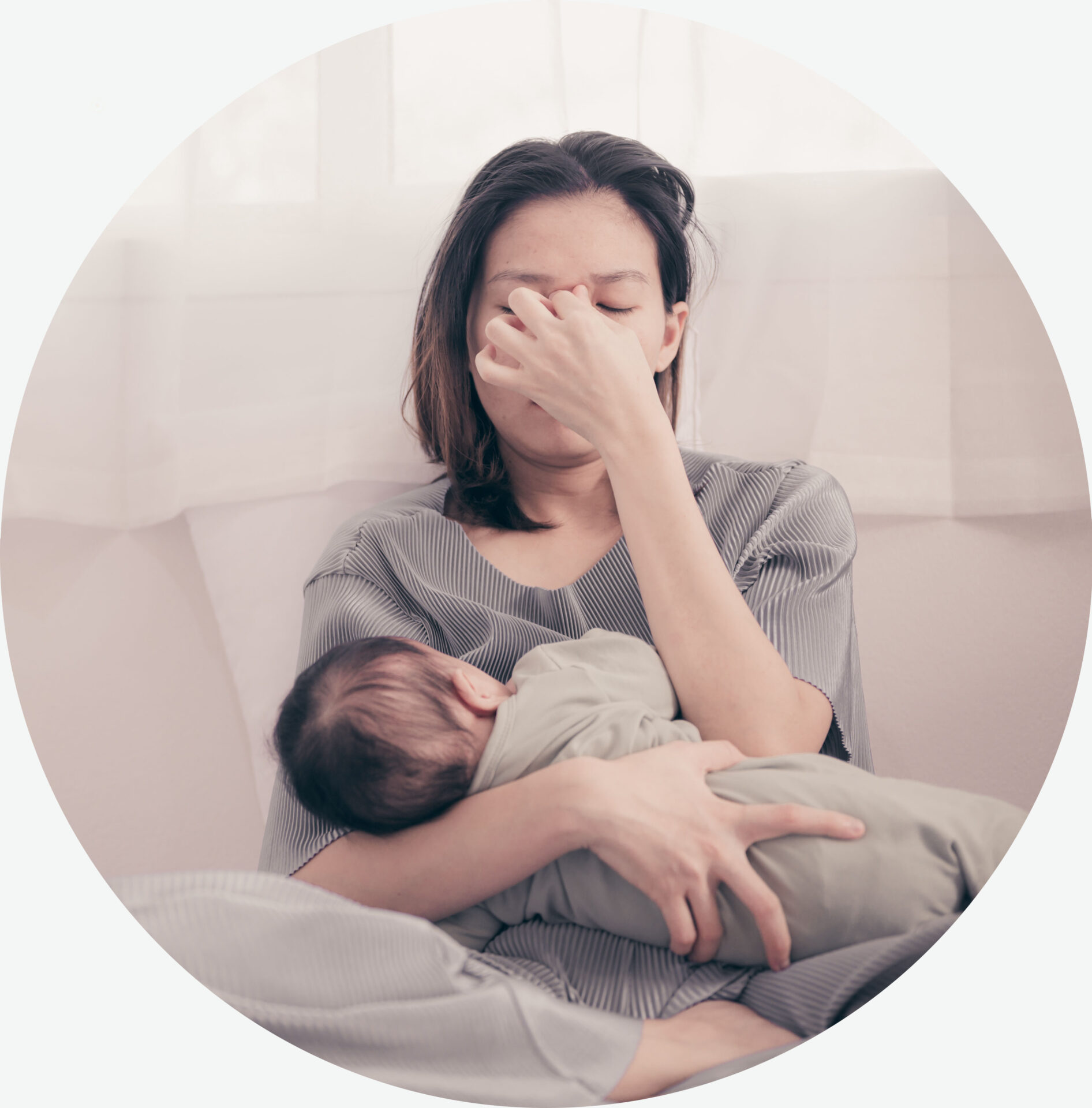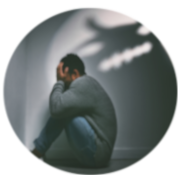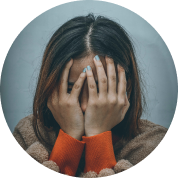Support for your diagnosis.
Every mental health condition is a nuanced and deeply individual experience. Our holistic, evidence-based approach to treatment and therapy takes shape in a supportive, safe environment. where healing can flourish.
-
-

Anxiety Disorders
Anxiety is among the most common and pervasive mental health conditions in the United States today. They are typified by a persistent, overwhelming, and sometimes uncontrollable dread of everyday situations. Oftentimes, people with anxiety feel that they are losing control.
-

Depression
Depression is a common mood disorder among adults and children under 18. Its symptoms can affect how you think, feel, and perform even the most basic daily activities, such as sleeping, eating, working, or social engagement.
-

Attention Deficit Hyperactivity Disorder (ADHD)
ADHD is a disorder that makes it hard to pay attention, sit still, follow directions, and control your behavior. ADHD can affect both kids and adults in school, work, home, and social or professional settings. Increasingly, adults are being diagnosed with ADHD.
-

Postpartum Depression
Postpartum is more serious than merely “baby blues.” Women who experience postpartum suffer major depressive episodes during their pregnancies and after delivery. Mothers often feel anxious, tired, and sad on a daily basis. These feelings can make it difficult for mothers to care for themselves and their babies.
-

Obsessive-Compulsive Disorder
Commonly called OCD, obsessive-compulsive disorder is a common, chronic, and long-lasting disorder characterized by uncontrollable, recurring thoughts (obsessions) or behaviors (compulsions) along with a strong urge to continually repeat them. It can interfere with nearly all aspects of daily life and be related to germs or contamination, precise ordering or symmetry, aggressive thoughts, compulsive counting, or other unhealthy compulsions.
-

Trauma
Trauma is a deeply distressing or disturbing experience that overwhelms an individual’s ability to cope. It can result from a single event or a series of events that are perceived as harmful, dangerous, or life-threatening. These experiences can have profound effects on the brain, emotions, and behavior, shaping how individuals perceive themselves and the world around them.
-

Grief
Grief is a natural response to loss, encompassing a range of emotions and reactions. Grief can include the death of a loved one, the end of a relationship, a job loss, or other significant life changes. It is a complex and deeply personal experience that can affect every aspect of a person’s life.
-

Panic Disorders
Sometimes called panic attacks, this is a type of anxiety that can lead to sudden and intense feelings of stress or fear. These feelings can occur even when there is no real danger. Symptoms include elevated heartbeat, difficulty in breathing, sudden perspiration, chest or abdominal pains, numbing in the extremities. These symptoms sometimes occur without warning.
-

Bipolar Disorder
An increasingly common condition characterized by unusual shifts in mood, activity levels, energy, and the ability to perform even the most basic daily tasks. Bipolar changes can cause extreme shifts in mood. Manic episodes are periods of intense happiness. Depressive episodes are characterized by periods of profound sadness and despair.
-

Phobias
Phobias are irrational, extreme fears about a situation, a place, a living creature, or even a simple object. The perceived threat presented by such fear causes immense distress — and can lead to debilitating panic attacks that prevent the ability to function in day-to-day life.
-

Schizophrenia
A severe mental health disorder that chronically and severely affects thoughts, emotions, and behaviors. Schizophrenia‘s symptoms may include hallucinations, delusions, movement disorders, decreased feelings of pleasure, and even impaired speaking ability. It may seem to others that one has lost touch with reality.
-

Psychosis
Psychosis can disrupt and distort a person’s most basic perceptions and thoughts, and make it difficult to distinguish between factual reality and perceived reality. These disruptions can manifest as seeing, hearing, or believing things that are not real. They can also result in consistently experiencing strange emotions, thoughts, and behaviors.
Restorative treatment plans and therapies – tailored to you.
Managing mental health conditions sometimes requires medication. Our Board-certified clinicians have the training and expertise to develop treatment plans specifically for you – and the empathy to guide you on your journey to recovery.
Explore medication management.
Your diagnosis, your symptoms, and your goals are unique. Your care should be, too. Our team of experienced therapists draws from a wide range of therapies to determine the right approach for you.


